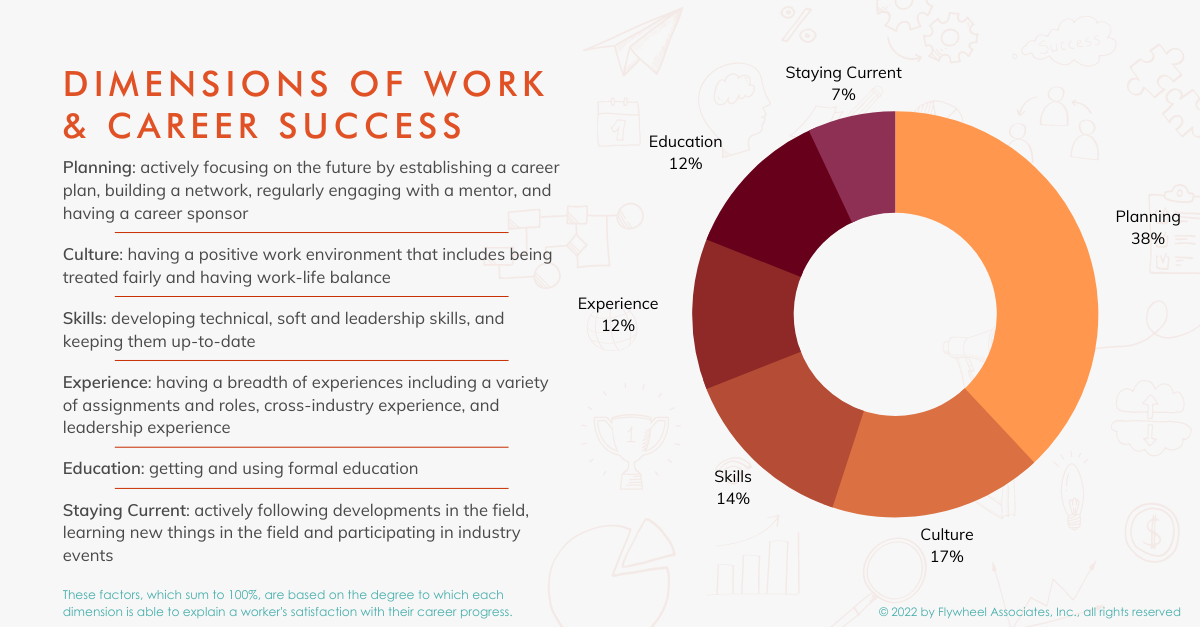This is Why Most Workers Don’t Feel Successful (& How We Can Change That)
We now live in a world where there are seemingly innumerable resources to help us achieve what we want at work, in our careers, and in our lives. But what really matters? What are the actions that move the needle of progress forward?
I’ve been thinking about this question for months.
I shared our first look at the State of Work and Career Success 2022 back in April. But I’ve continued to dive deeper into the data to see what else we can learn about career success, and last week we released “What Workers Want #2: Diving Deeper into Career Progress.”
What’s driving the state of our success?
The average U.S. worker does not feel successful in achieving their life or career goals; only 29% of those surveyed consider themselves to be “highly successful” and most only graded themselves a “low C” on average.
So what’s driving the low success score?
As I wrote in last month’s newsletter, it’s important to understand that there are six dimensions that contribute to work and career success:
Planning
Culture
Skills
Experience
Education
Staying Current
Not only does Planning have the greatest impact on a worker reporting that they feel successful in their career — double the impact on career success of any other dimension — Planning is where people are struggling the most.
And this gap is really important because it teaches us two things: (1) not having a plan (or support in creating a plan, like a mentor) is likely the leading contributor to our middling success score and (2) we now know the most important thing an individual can focus on if they don’t feel successful.
Why this gap exists makes some logical sense. Skills, for example, which is where people feel the most successful, are easier to attain because skill development resources are readily accessible. Further, skill development takes less time and is more likely to be supported (or required) by an organization. But Career Planning activities aren’t as tangible or concrete in comparison.
We can see that those who don't feel successful aren’t prioritizing the things that matter most — but also see they aren’t receiving very much support, culturally or organizationally, when it comes to these critical areas.
The Planning activities included in our survey were creating specific career goals with a plan to achieve them, building networks/contacts, having a mentor to discuss your career, and having a career sponsor to advocate for you. Fewer than half of those surveyed felt successful at accomplishing any of these things, and having a mentor and having a career sponsor are sitting at the bottom of our list with only about ⅓ of workers feeling successful.
Further, most workers indicate that their workplaces do not have the key characteristics, programs, plans, or cultural dynamics that are important to their work and career success, especially when it comes to career planning. Only 11% of those surveyed indicate their workplace has a formal and active mentorship program.
With over half of Gen-Zs and millennials expecting their employer to help them prepare for the future of work, there is the expectation, desire and need for leaders to help workers build a career plan and feel more successful. Because when workers feel successful, companies benefit in terms of their own business outcomes.
So there’s no question in my mind about what we need to do next to improve the state of work and career success — as individuals and as business leaders.
To dive deeper into the findings you can go to https://www.conniewsteele.com/research to download the latest report.
This article was originally published on LinkedIn as part of Connie Steele’s monthly newsletter, The Human Side of Work. You can find the original article and subscribe to the newsletter at https://www.linkedin.com/pulse/why-most-workers-dont-feel-successful-how-we-can-connie-wang-steele.




